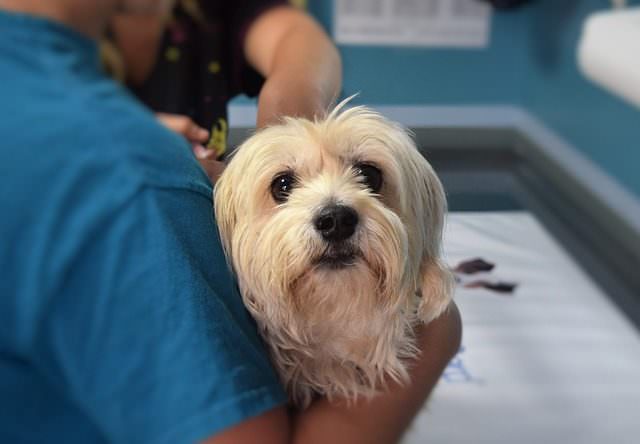No one is perfect and neither is their dog. But there are things you should know and your vet is probably not going to tell you. They’re not pretty, and you won’t like hearing them at all – which is probably why you will never hear these phrases come out of your vet’s mouth. Still, knowing these things will help your dog live the best life possible, and make you a more responsible pet owner.

#1 You are the reason that your dog overeats.
If your dog is overweight, it is a problem. Studies show that dogs that are kept at a normal body condition live almost 2 years longer than their overweight counterparts. I go into exam rooms with obese pets and sometimes the owners are overweight also. It makes me uncomfortable to discuss diet choices in these cases. Occasionally the owner will even comment wryly about their own weight. Your choices are your choices. You can take a calculated risk and decide if the food item is worth any potential adverse consequence, but your dog cannot. He or she eats what you give, for better or for worse.
#2 You are ultimately the one responsible for your pet’s behavior.
Sadly almost all of the dogs surrendered to shelters have not had any obedience training and I cannot help but wonder if such training would have affected the outcome. I hear many complaints and issues from my clients about dog and cat behavior. I would estimate 80% or more pet owners would say that they are not entirely happy with their pet’s behavior. Animals are animals and the way they learn and react is usually predictable (and modifiable).
#3 Not every pet needs every available vaccine every year.
Vaccines have been in the news lately and many people have strong opinions for and against vaccines. All pets need some vaccines, but a vaccine protocol is not one size fits all. If your vet does not do a risk assessment for each individual animal, he/she is not doing right by your pet.
#4 It IS your fault.
Veterinary professionals make recommendations for the preventive care to keep your pets healthy. We have excellent means to protect pets from many preventable diseases. Heartworms, intestinal/external parasites and many infectious diseases have effective and convenient preventive strategies. What your vet may not tell you is that if your pet succumbs to one of these diseases or disorders, it is your fault.

#5 Your unrestrained dog is at risk of death.
Many pets are lost and injured every year. It is our responsibility as a pet parent to make sure that our pet’s environment is safe and he or she is restrained. I see pets killed and injured by cars frequently. Accidents happen, but if your pet is adequately restrained, you are minimizing risk. There is a leash law in my area for dogs and most people know that cats kept indoors are more protected from loss and injury. It isn’t really a secret, but your vet won’t come out and tell you that if your pet runs loose, his risk of death is great.
I am telling you these secrets and what you can do to use the knowledge for the best life for your pet. Take responsibility for your pet’s diet, preventive care and restraint. Make sure that your veterinarian is taking the time to tailor her recommendations to your pet’s individual lifestyle and needs. Follow preventive care guidelines religiously. It is a shame for a pet to suffer needlessly from a preventable issue. Do your best to create and maintain a habitat that encourages your pet’s health and happiness. Seek help. Veterinarians, behaviorists, and animal trainers can be an excellent resource to build a healthy bond with your pet. Ask questions of actual professionals you know and trust. Knowledge is power, but not all knowledge is accurate.

